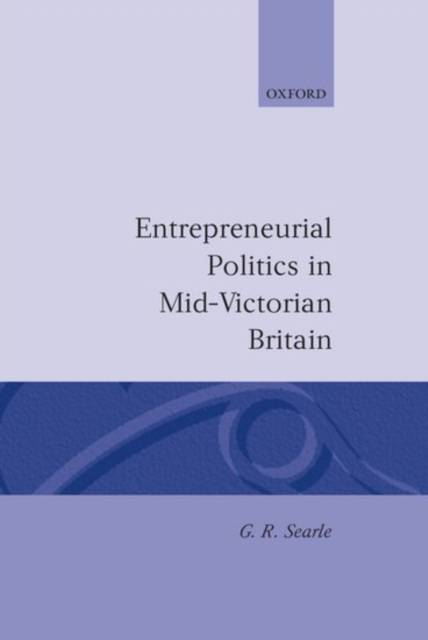
- Afhalen na 1 uur in een winkel met voorraad
- Gratis thuislevering in België vanaf € 30
- Ruim aanbod met 7 miljoen producten
- Afhalen na 1 uur in een winkel met voorraad
- Gratis thuislevering in België vanaf € 30
- Ruim aanbod met 7 miljoen producten
Zoeken
€ 124,45
+ 248 punten
Omschrijving
Historians have long debated the issue of why Britain did not experience a middle-class revolution. In the mid-Victorian years, in the aftermath of the Great Reform Act and the repeal of the Corn Laws, it seemed that a decisive shift of power from the aristocracy to the middle class might take place. In this perceptive and original book, G. R. Searle shows how many MPs from business backgrounds, the so-called "entrepreneurial Radicals," came to Westminster determined to impose their own values and priorities on national life. Some wanted to return public manufacturing establishments to private ownership; others hoped to create an educational market. Nearly all of them worried about how best to safeguard the truths of political economy should the franchise be extended to the propertyless masses. Their partial successes and many failures helped determine the political culture of modern Britain.
Specificaties
Betrokkenen
- Auteur(s):
- Uitgeverij:
Inhoud
- Aantal bladzijden:
- 354
- Taal:
- Engels
Eigenschappen
- Productcode (EAN):
- 9780198203575
- Verschijningsdatum:
- 27/05/1993
- Uitvoering:
- Hardcover
- Formaat:
- Genaaid
- Afmetingen:
- 152 mm x 229 mm
- Gewicht:
- 689 g

Alleen bij Standaard Boekhandel
+ 248 punten op je klantenkaart van Standaard Boekhandel
Beoordelingen
We publiceren alleen reviews die voldoen aan de voorwaarden voor reviews. Bekijk onze voorwaarden voor reviews.











